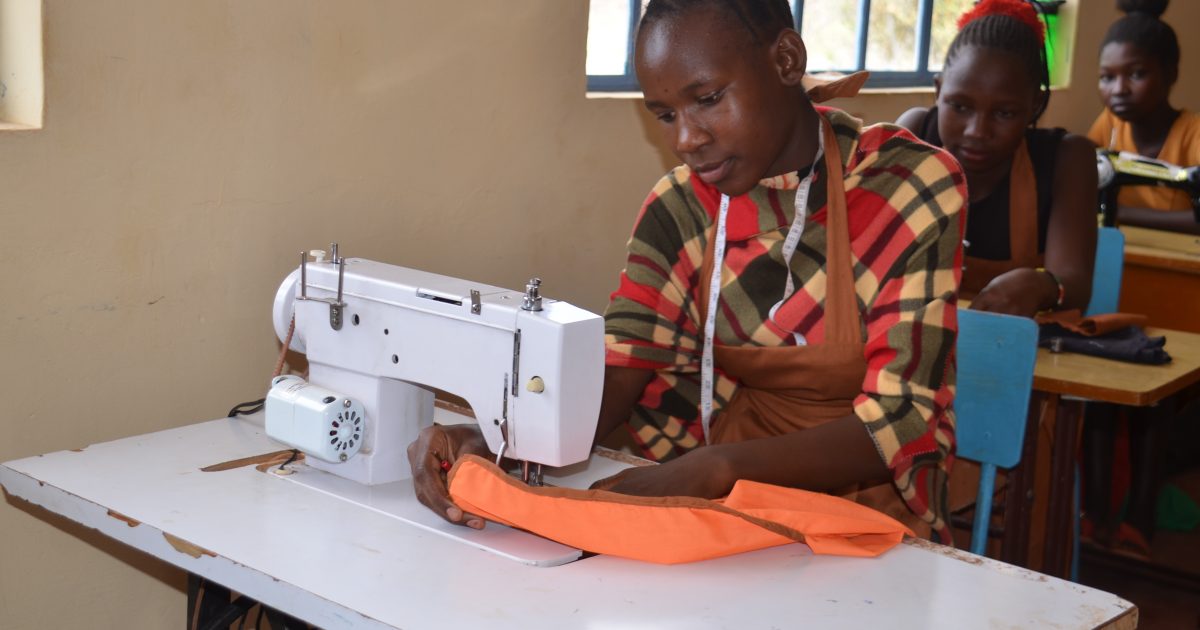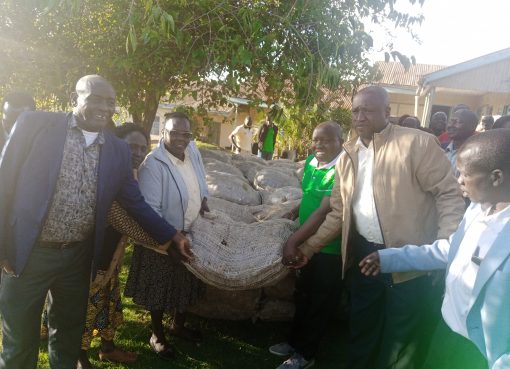At 20, Constance Mghoi is a dreamer. Hers is a grand vision to become an international clothes’ designer with her production line being patronized by the famous and known. It is this pursuit of her dream which drove her to Kishushe Vocational Training Center (VTC) where she enrolled in a dressmaking course.
This, she says, is her launch pad into the world of her dreams. “I plan to make a living from dressmaking and I will,” she says.

Mghoi is amongst over 40 youths enrolled at Kishushe VTC. Each has a personal goal; acquire market-oriented skills to enable them strike out on their own and escape the crippling poverty that has characterized their lives.
For many years, Kishushe residents have been confronted by several monumental challenges. They include ravaging drought, perennial human-wildlife conflicts from elephants and hyenas from Tsavo National Park and nearby conservancies, lack of key infrastructures like road networks and electricity.
To empower the locals, the County government in 2019 constructed the VTC as part of an empowering program for the youth in one of the most marginalized areas in Taita-Taveta County. The center would equip youth with skills in various practical fields including carpentry, masonry, hairdressing and dressmaking. A non-governmental agency working in the region later donated modern equipment to boost the hairdressing and dressmaking courses for learners.
Mr. James Kombo, the manager of the VTC, says the donation was a welcome move to bolster skill acquisition. However, there was one major impediment: Power. There was no electricity connectivity in the center making it impossible to utilize the equipment. The expensive equipment was packed in boxes and tossed in the store.
“There was no electricity to help operate the equipment. We could only use them when we got power and had no idea when that would be,” he explains.
All this time, dozens of learners in the hairdressing course who had enrolled at the VTC never took any practical lessons on use of salon equipment including blow dryers, driers, toners and sterilizers. The closest they came to having practical lessons was plaiting and combing hair pasted on dummy heads.
With no electricity, it was not even possible to consider introducing additional courses like welding, metalwork and fabrication.
That was then. Currently, Kishushe VTC is a model on how innovation in the energy sector and adoption of green energy in drought-prone areas can act as a catalyst in promoting skills for youth and young mothers from marginalized communities.
In 2021, the center became a beneficiary of a green energy project undertaken by World Wildlife Fund (WWF) through the funding by BMZ German Federal Ministry for Economic Development. The project entailed installing 70 high-voltage solar panels with capacity to generate power equivalent to three-phase one. The installation also involved setting up a power room with 100 batteries for power storage.
Since the solarization, the VTC has roared to life. The hairdressing equipment and dressmaking machines are no longer lying idle in the store. The number of students is gradually peaking since the introduction of practical lessons in hairdressing.
Ms. Mercy Mzae, a hairdressing instructor, says learners’ numbers and enthusiasm have gone up. She discloses that practical lessons allowed the VTC to have the first batch of 17 students sit for National Industrial Training Authority (NITA) examinations. All students passed and graduated to the next level.

“We are now competing equally with learners in other VTCs. We could never present learners for NITA exams but having power has revolutionized learning for young girls,” she says.
One key success has been the commercializing of hairdressing skills by resourceful learners at the VTC. Most learners are actively sourcing for hairdressing jobs from women and girls in the villages at a small fee. The learners are using the donated equipment to learn and earn a living.
“The learners are embracing entrepreneurship skills,” she said.
The entrepreneurship fever has spread to the dressmaking course. Learners are using electric sewing machines which are considered more efficient and faster than the manual ones. They are also using electric iron unlike in the past when they came with pieces of charcoal to heat the old-fashioned charcoal iron box. Most are getting dressmaking jobs from pupils and residents in the nearby villages.
Ms. Mghoi, a dressmaker, says she after finishing her schoolwork, she works on her private jobs which earns her money to buy personal effects. If the workload is large, she opts to work late into the night.
“There is lighting and security for me to work late when I have urgent deliveries for clients,” she says.
Mr. Mohamed Awer, Chief Executive Officer (CEO) of WWF, says solarizing the VTC is compatible with the conservation goal to empower rural communities through provision of clean power. He adds that WWF promotes community initiatives that both promote industry and encourage sustainability.
“Sun is a resource. Tapping and utilizing clean energy remain at the heart of our projects to empower communities. This is in tandem with our conservation goals of having nature-based solutions to address local challenges,” he said.
Mr. Kombo, the center manager, says the next phase is on diversification and introduction of power-intensive courses which are in high demand. They include electrical, wiring, welding and fabrication, food processing and beauty therapy.
He admits that lack of power was a major impediment to diversification.
“With power readily available, we look forward to having additional courses that are in demand and equip our youth with skills that are market-oriented,” he says.
He notes that the center is using the power without worrying about the high cost of bills. He discloses that the facility has become more secure for both learners and night guards because of the security lights installed around the center.
To encourage enrolment by young mothers and girls who had dropped out of school, the center has introduced a heated room for toddlers to play in as their mothers attend classes.
By Wagema Mwangi




